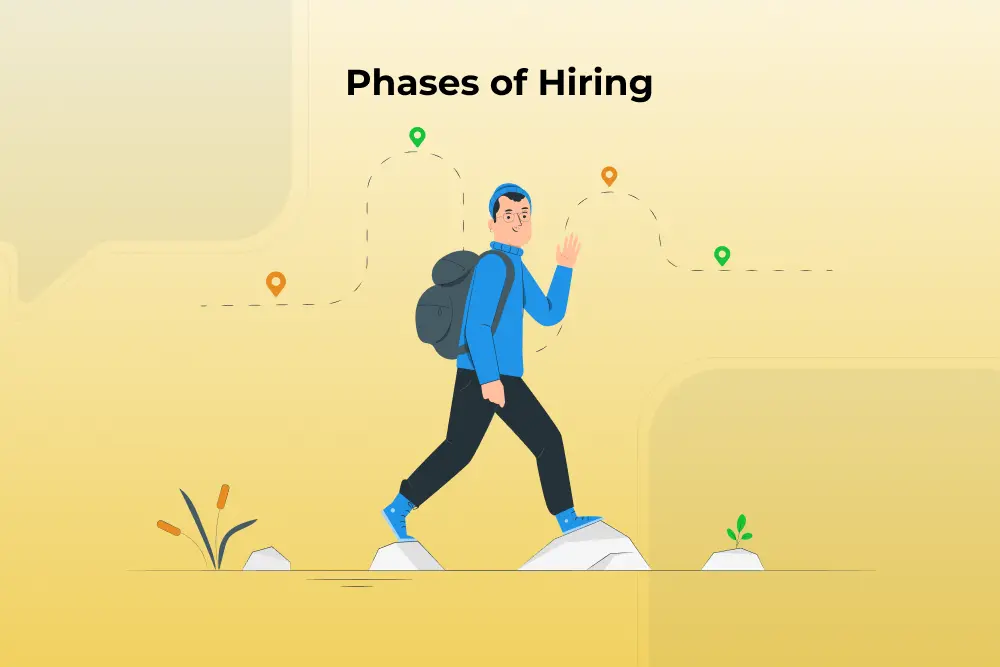In today’s fast-paced business world, effective recruitment is essential for success. Navigating the recruitment journey requires a deep understanding of the phases of hiring. In this comprehensive guide, we will delve into the intricacies of the hiring process, shedding light on each step and providing expert insights. Whether you’re a job seeker, a recruiter, or a business owner, this article will help you gain a deeper understanding of how to navigate the recruitment journey successfully.
Introduction
Recruitment is a critical aspect of building a successful team and organization. It involves several phases that demand careful planning and execution. Each phase contributes to the ultimate goal of finding the right candidate for a job role. Let’s explore these phases in detail.
Understanding the Phases
- Identifying Job Requirements
To kickstart the recruitment journey, employers must define the job’s specific requirements. This includes responsibilities, qualifications, and experience necessary for the role. Identifying these requirements is a foundational step, as it sets the stage for the entire process.

- Sourcing Candidates
Once job requirements are clear, it’s time to find potential candidates. This phase involves various strategies, such as posting job listings, using recruitment agencies, and leveraging social networks. Effective sourcing ensures a diverse pool of candidates.

- Screening and Shortlisting
In this phase, recruiters review resumes and applications, looking for candidates who meet the job’s criteria. It involves an initial evaluation to narrow down the candidate pool.

- Interviewing
Interviews are the heart of the recruitment process. They allow employers to assess a candidate’s skills, experience, and cultural fit. Different types of interviews, like behavioral and technical, help in making well-informed decisions.

- Assessment and Testing
Depending on the role, candidates may be required to undergo assessments or tests to validate their qualifications. These evaluations ensure that candidates possess the necessary skills for the job.

- Checking References
Reference checks provide valuable insights into a candidate’s past performance and character. It’s a crucial step to verify the accuracy of a candidate’s claims.

- Negotiating Offers
Once the right candidate is identified, the next phase involves negotiating the job offer. This includes discussing compensation, benefits, and other terms of employment.

- Onboarding
After an offer is accepted, onboarding is the final phase. This includes integrating the new employee into the organization, ensuring they are prepared for their new role.

Expert Insights
Recruitment experts emphasize the importance of understanding the hiring phases. Here are some insights:
- Diversity and Inclusion: In the sourcing phase, consider diversity and inclusion. Diverse teams often lead to more innovative and creative solutions.
- Behavioral Interviewing: Behavioral interviews reveal a candidate’s past behavior and predict future actions. They are a valuable tool in the interview phase.
- Onboarding Matters: The onboarding phase is critical for retaining top talent. A well-structured onboarding process sets the stage for a successful employment journey.
FAQs
What is the most critical phase in the recruitment journey?
All phases are essential, but identifying job requirements lays the foundation for a successful hiring process.
How can I ensure a diverse candidate pool?
Use a variety of sourcing methods, promote job listings widely, and partner with organizations that specialize in diversity recruitment.
What’s the key to a successful interview?
Prepare well-structured questions, use behavioral interviewing techniques, and assess cultural fit.
How do I create an effective onboarding process?
Provide comprehensive training, assign a mentor, and ensure the new employee feels welcome and valued.
What if a candidate doesn’t perform well in assessments or tests?
It’s essential to consider the nature of the role and the significance of the assessment. Sometimes, additional training can bridge the gap.
Why are reference checks important?
Reference checks validate a candidate’s claims and provide insight into their past performance and behavior.
Conclusion
Navigating the recruitment journey is a multifaceted process, comprising several phases. Success in recruitment hinges on careful planning and execution, along with a deep understanding of each step. Whether you’re a job seeker or an employer, this knowledge will help you navigate the recruitment journey effectively and build successful teams.










